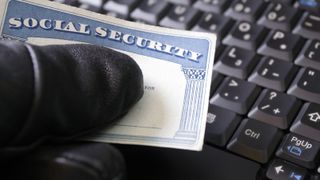Online Security
Explore Online Security
Latest about Online Security

Nearly 500,000 patients hit in massive healthcare data breach — everything you need to know
By Scott Younker published
Covenant Health has confirmed that a May data breach exposed more information and impacts more people than it previously disclosed.

Malicious Zoom Stealer extensions can leak your private meeting details — how to stay safe
By Amber Bouman published
Chrome, Edge and Firefox users are under attack by a new malware that uses malicious browser extensions to steal meeting info.

I write about hackers for a living but these are the 3 real-world threats that worry me most — and how to avoid them in 2026
By Anthony Spadafora published
Data breaches and malware may get all the attention but real-world threats can do just as much damage, especially when you’re not even looking for them.

From misinformation to AI-powered cyberattacks – the top cybersecurity risks for 2026
By Aleksandar Stevanović published
Cyber threats are evolving fast. From AI attacks to quantum risks, here are the top cybersecurity dangers everyday users should watch out for in 2026.

I’m a security editor and these are my 3 security New Years resolutions
By Amber Bouman published
As a security editor, here are my 3 New Year's resolutions I'll be sticking to for better security.

22.6 million hit in massive Aflac data breach with IDs, SSNs, healthcare info and more exposed — what to do now
By Anthony Spadafora published
Aflac is notifying impacted customers after completing an investigation into a massive data breach that occurred back in June.

The biggest VPN developments of 2025 – and what 2026 has to offer
By Mo Harber-Lamond published
2025 was a huge year for VPNs, with age verification, social media bans, and brand new innovation in the field. I've rounded up this year's top stories in one place.

Massive Rainbow Six Siege breach reportedly linked to MongoBleed flaw — everything you need to know
By Anthony Spadafora published
Hackers are leveraging the new MongoBleed flaw to leak memory from exposed MongoDB instances and Ubisoft’s Rainbow Six Siege could be one of the first victims.
Here at Tom’s Guide our expert editors are committed to bringing you the best news, reviews and guides to help you stay informed and ahead of the curve!


